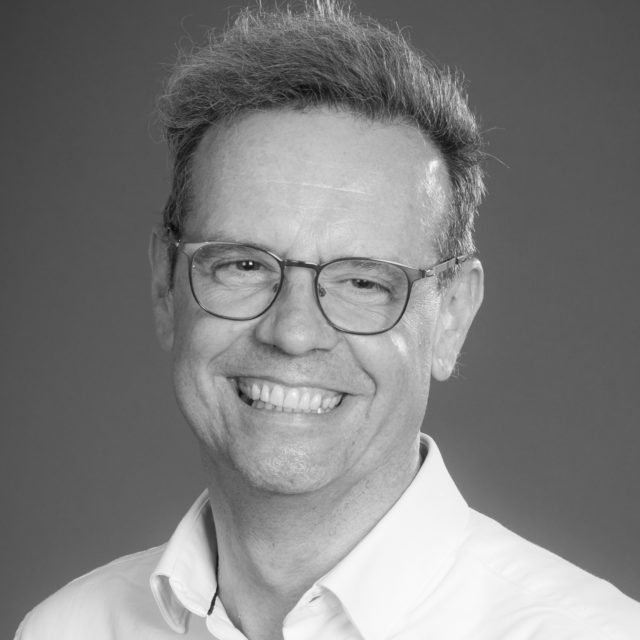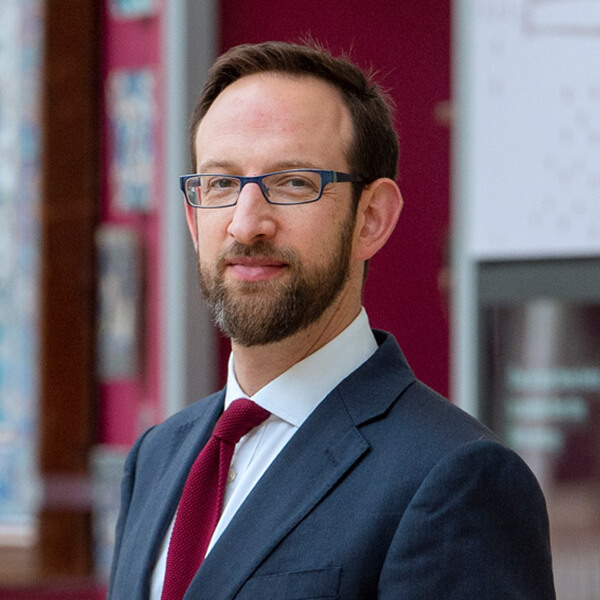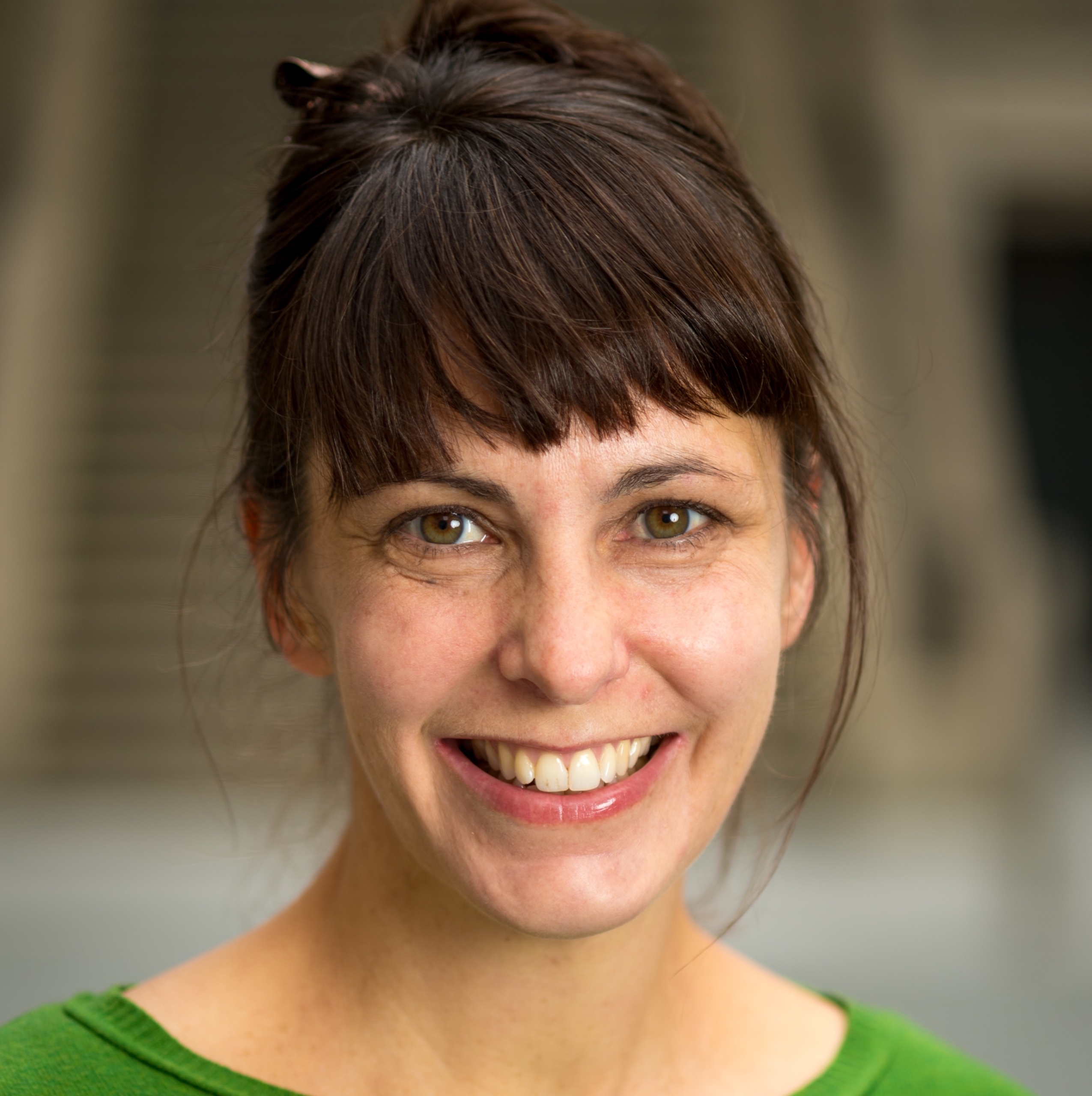Editorial Board
Dr Sam Alberti
Samuel JMM Alberti FRSE is Director of Collections at National Museums Scotland, and an Honorary Professor in Heritage Studies at the University of Stirling. After training in history of science and teaching museology he worked at the intersection of museums and universities, first at the Manchester Museum, then as Director of Museums and Archives at the Royal College of Surgeons of England (including the Hunterian Museum). He has also held visiting research appointments in London, Philadelphia, and Edinburgh. In 2016 he joined National Museums Scotland, initially as Keeper of Science & Technology. He is interested in the how the Cold War, climate change, and biodiversity manifest in museums.
Selected publications
- Alberti, S, Douthwaite, J, and Nehring, H, 2024, Cold War Scotland(Edinburgh: National Museums Scotland)
- Alberti, S, Douthwaite, J and Nehring, H (eds), 2024, Cold War Museology (London: Routledge)
- Alberti, S, 2022, Curious Devices and Mighty Machines: Exploring Science Museums (Reaktion)
- Alberti, S, 2011, Morbid Curiosities: Medical Museums in Nineteenth-Century Britain (Oxford: Oxford University Press)
- Alberti, S, 2009, Nature and Culture: Objects, Disciplines and the Manchester Museum (Manchester: Manchester University Press)
Dr Katy Bunning

Katy Bunning is an Associate Professor in the School of Museum Studies, University of Leicester.
Katy has undertaken research, teaching and supervision in the School of Museum Studies since 2018, focusing on race equity work and the impact of racial justice movements in museums. Prior to this, she worked for 13 years with the School on distance learning development and innovations, including the development of the Behind the Scenes at the 21st Century Museum MOOC.
Building on her degree in American Studies, Katy completed a PhD on the impact of racial justice and rights movements on the development of new museums at the Smithsonian Institution during 1980s-2010s. This research was published in her monograph Negotiating Race and Rights in the Museum (Routledge 2021), which explores the production of racial ideas within museum approaches and professional discourses.
Building on her doctoral research, and working within the Research Centre for Museums and Galleries (RCMG) at Leicester, Katy is undertaking action research with the Museum of London (partly funded by ESRC), to explore forms of embedded whiteness within museum practices and professional norms. With RCMG, Katy has also researched participatory practices at the Science Museum (2014), and supported the design of a new framework for community engagement with the Museum of London (2020). Katy is also supporting funded PhD research on colonial histories (AHRC/Tate), and the development of new institutional practices based on non-hegemonic logics of the Global South.
Katy’s pedagogic research focuses on the design of accessible curricula and positive action initiatives to create a more inclusive postgraduate environment for museum studies and the wider professional sector. For this work she received a University Distinguished Teaching Fellowship in 2020.
Selected publications:
Bunning, K. (2021) Negotiating Race and Rights in the Museum, Routledge.
Bunning, K. (2018) 'Ethnic heritage for the nation: Debating "identity museums" on the National Mall', in Watson, S., Barnes, A.J. and Bunning, K. (eds.) A Museum Studies Approach to Heritage. Leicester Readers in Museum Studies, Routledge.
Watson, S., Barnes, A. J. and Bunning, K. (2018) 'Introduction', in Watson, S., Barnes, A.J. and Bunning, K. (eds.) A Museum Studies Approach to Heritage. Leicester Readers in Museum Studies, Routledge.
Bunning, K., Kavanagh, J., McSweeney, K., and Sandell, R. 2015. 'Embedding Plurality: Exploring participatory practice in the development of a new permanent gallery'. Science Museum Group Journal, 3, Spring.
Professor Jane Henderson
Professor of Conservation, School of History, Archaeology and Religion, Cardiff University
I am the Secretary General International Institute for Conservation. I teach on the BSc and MSc degrees in Conservation and Collection Care. I serve on the editorial panel of the Journal of the Institute for Conservation, am a co-opted member on the trustee board of the Welsh Federation of Museum and Art Galleries. I am internationally recognised, I am a visiting Researcher of the Scientific Conservation Institute in Beijing and I serve on the European standards body CEN TC 346 WG11 and on the BSI standard group B/560 concerned with the conservation of Tangible Cultural heritage.
Research interests include:
- Decision making
- Delivering excellence in access and use of collections
- Influence techniques
- Disaster or Emergency Preparedness Planning
- Cultural heritage collections in Wales
Recent Publications:
- Henderson, J. 2022. 'Conservators delivering change.' Studies in Conservation 67(S1), pp. 105-111. (10.1080/00393630.2022.2066320)
- Sweetnam, E. and Henderson, J. 2022. 'Disruptive conservation: challenging conservation orthodoxy.' Studies in Conservation 67(1-2), pp. 63-71. (10.1080/00393630.2021.1947073)
- Henderson, J. 2020. 'Beyond lifetimes: who do we exclude when we keep things for the future?' Journal of the Institute of Conservation 43(3), pp. 195-212. (10.1080/19455224.2020.1810729)
- Henderson, J. and Lingle, A. 2020. 'Preventive Conservation on Archaeological Sites: UK Policy and Practice.' China Cultural Heritage 2, pp. 25-35.
- Henderson, J., Waller, R. and Hopes, D. 2020. 'Begin with benefits: reducing bias in conservation decision-making.' Studies in Conservation 65(S1), pp. 142-147. (10.1080/00393630.2020.1787638)
- Lingle, A. M. and Henderson, J. 2020. 'Preserving the archaeological archive.' In: Smith, C. ed. Encyclopedia of Global Archaeology. Switzerland: Springer, (10.1007/978-3-319-51726-1_3517-1)
Professor Michelle Henning
Michelle writes and researches on photography, museums, media, modernism and visual culture. Her background is in fine art and cultural studies, but her research has increasingly focused on: museum media and exhibitions displays; a cultural and environmental history of photography; digital photography and social media. Funded by the AHRC she has researched in the archives of the British photographic company Ilford Limited. Previous grants have funded research into taxidermy in museums and the work of the Viennese polymath, social scientist and museum innovator Otto Neurath. She also sits on the editorial board of photographies journal,
Revista de Comunicação e Linguagens and the journal
Visual Culture in Britain. She has been involved in collaborative and advisory work with various UK institutions including Bristol Museums and Archives, Arnolfini and Tate Liverpool. She has been a member of the AHRC Peer Review College and of the jury for the Crespo Foundation
After Nature prize at C|O Berlin.
- Henning, M, 2024, A Dirty History of Photography: Chemistry, Fog and Empire(Chicago: University of Chicago Press)
- Henning, M, 2024, 'Photography's Other Sensitivities', Media Theory 8:1
- Henning, M, 2018, Photography: the Unfettered Image (London: Routledge)
- Henning, M, 2015, Museum Media, Vol. 3 of The International Handbooks of Museum Studies (Oxford: Wiley-Blackwell)
- Henning, M, 2006, Museums, Media and Cultural Theory (Maidenhead; Open University Press)
Professor Heather King
Professor Heather King’s research examines the ways in which educators foster learner engagement with science across many contexts including schools, museums, the natural environment, and non-formal spaces such as maker-spaces. In particular, her work focuses on social and environmental justice concerns with respect to science education practice.
Heather is co-chair of the Science and Technology Education Research Group at King’s College London and teaches modules in STEM education leadership, in STEM Making and Creating, and in Education in Arts and Cultural Settings. She is also the Vice President for Education at the British Science Association.
Dr Theano Moussouri
Theano Moussouri is Professor of Museum Studies at UCL Institute of Archaeology. Her research looks at the role and value of museums as well as the impact museum visits have on people’s social life. Her work in food heritage has been used to shape policy debate related to food and food security in Scotland, England (National Food Strategy, Defra) and Canada (Food Secure Canada). She has a track record of peer-reviewed research publications and has authored two books, entitled
Museum Learning: Theory and Research as Tools for Enhancing Practice (2017), and
Museums, Identity and Family Practices (2024). She currently serves on the SMGJ Editorial Board and is Co-Editor of
Curator: The Museums Journal.
Recent publications
- Moussouri, T, 2024, Museums, Identity and Family Practices (Routledge)
- Cecilia, R, Moussouri, T, and Fraser, J, 2023, 'Accessible digital images: AltText guidelines for authors and museum professionals' Curator 66, 537-546
- Alexopoulos, G, Kapelari, S, and Moussouri, T, 2022, Food heritage as a catalyst for environmental sustainability: Reflections on the cultural value imbued by citizens to food and its role in supporting scientific debate about food security. In Fouseki, K, Cassar, M, Dreyfuss, G, & Ang, K K E (eds), Routledge Handbook of Sustainable Heritage (Routledge) pp 323-347
- Price, S, Jewitt, C and Moussouri, T, 2021, ‘Supporting Family Scaffolding and Collaboration Through Digital Interactive Tabletop Exhibits’, Visitor Studies
- Rahman, D, Moussouri, T, Alexopoulos, G, 2021, ‘The social ecology of food: where agroecology and heritage meet’, Sustainability 13(17), 9510
Professor Ross Parry

Ross Parry is Director of the Institute for Digital Culture at the University of Leicester, and Professor of Museum Technology in its School of Museum Studies.
A Principal Fellow of the Higher Education Academy, former Tate Research Fellow, and former chair of the UK’s national Museums Computer Group, Ross is also one of the founding Trustees of the Jodi Mattes Trust - for accessible digital culture.
He is a board member of Attenborough Arts Centre, and a member of the UK Research and Industry’s Steering Committee of its £19mn digital cultural heritage initiative ‘Towards a National Collection’. Previously he was visiting professor at the Danish Research Centre on Education and Advanced Media Materials (University of Southern Denmark), and from 2017 to 2021 he served on the International Advisory Board for the €6mn ‘Our Museum’ project, funded by Nordea-Fonden and Velux Fonden.
Ross continues to lead the ‘One by One’ international consortium of museums, professional bodies, government agencies, commercial partners and academics, that together are working to build digitally confident museums. After a three-year national project in the UK (working with the Museums Association, Arts Council England and the National Lottery Heritage Fund), the consortium’s subsequent projects have brought partners (including the V&A, Science Museum, National Museums Scotland and Amgueddfa Cymru – National Museum Wales) into an action research collaboration with the Smithsonian Institution and American Alliance of Museums. The work now continues (in partnership with Surface Impression and Culture24), supported by the Canada Council for the Arts.
Selected publications:
Parry, R. (2023). ‘Code switching: Feeling the ‘emotional turn’ in digital cultural heritage’, in D. Giglitto, L. Ciolfi, E. Lockley & E. Kaldeli (eds.), Digital Approaches to Inclusion and Participation in Cultural Heritage: Insights from Research and Practice in Europe (Routledge).
Parry, R. & Dziekan, V. (2022). ‘Critical Digital: Museums and their Postdigital Circumstance’, in H. Barranha & J. S. Henriques (eds.) Art Museums and Digital Cultures: Rethinking Change (Universidade NOVA de Lisboa & Museum of Art, Architecture and Technology), pp. 9-19.
Parry, R., Foti, P. & Natale, S. (2021). 'When Digital Becomes the Object: Developing Computing Histories in Museums.' MW 2021. Published February 1, 2021.
Parry, R. (2019). 'How Museums Made (and Re-Made) Their Digital User', in T. Giannini & J.P. Bowen (eds.), Museums and Digital Culture. Springer Series on Cultural Computing (Springer), pp. 275-293.
Drotner, K., Dziekan, V., Parry, R. & Schrøder, K. (eds) (2019). The Routledge Handbook of Museums, Media and Communication (Routledge).
Malde, S., Kennedy, A & Parry, R. (2019). Understanding the Digital Skills & Literacies of UK Museum People. One by One (Leicester: University of Leicester).
Parry, R., Page, R. & Moseley, A. (eds) (2018). Museum Thresholds: the Design and Media of Arrival (Routledge).
Parry, R. (2013). 'The End of the Beginning: Normativity in the Postdigital Museum', Museum Worlds, vol. 1, 24-39.
Parry, R. (2013). 'The Trusted Artifice: Reconnecting with the Museum's Fictive Tradition Online', in K. Drotner and K. Schrøder (eds) Museum Communication and Social Media: The Connected Museum (New York and Abingdon, Oxon.: Routledge), pp. 17-32.
Parry, R. (2011). 'Transfer Protocols: Museum Codes and Ethics in the New Digital Environment', in J. Marstine (ed.) Routledge Companion to Museum Ethics: Redefining Ethics for the Twenty-First Century Museum (Routledge), pp. 316-331.
Parry, R. (ed.) (2010). Museums in a Digital Age. Leicester Readers in Museum Studies (Abingdon and New York: Routledge).
Dr Charlotte Sleigh
Charlotte Sleigh is a researcher, writer and practitioner across the science humanities (science and history, literature, theology) and science communication. In recent years Charlotte has been involved with a number of art and science projects (e.g. Chain Reaction!, 2013 and Metamorphoses, 2017) and various forms of climate science communication. She has done consultancy and engagement projects for organisations including the Royal Society, local business and a UK City Council, as well as freelance work in editing and coaching for writing. Examples of her writing for general readers can be found at Noema and Aeon magazines and at Wellcome Stories.
Charlotte has long-standing academic research interests in human-animal relations, their science and representation. Besides this, she has written widely on science and literature (Literature and Science, Palgrave 2010) - and on science fiction and early fandom in Britain. In recent years, Charlotte come to focus on intersections between theology and science; she is currently research consultant for the international project Equipping Christian Leadership in an Age of Science.
Charlotte is a former editor of the British Journal for the History of Science and former president of the British Society for the History of Science.
Selected publications
- Sleigh, C, 2020, Human (Reaktion)
- Sleigh, C, 2016, The Paper Zoo (British Library/Chicago)
- Sleigh, C, 2012, Frog (Reaktion)
- Sleigh, C, 2010, Literature and Science (Palgrave)
- Sleigh, C, 2007, Six Legs Better (Johns Hopkins)
Dr Tim Snelson
Tim Snelson is associate professor in media history at the University of East Anglia. Tim’s research addresses the relationships between media, social and medical histories, focusing particularly on popular film and media genres (horror, true crime, psychological thrillers); media and mental health; youth and digital media; audiences and cinemagoing; material cultures; and screen heritage. His research has been published in journals including
Media History,
History of the Human Sciences,
Science Museum Group Journal and
Cultural Studies, and in monographs
Phantom Ladies: Hollywood Horror and the Home Front (Rutgers University Press, 2015) and
Demons of the Mind: Psychiatry and Cinema in the Long 1960s (Edinburgh University Press, 2024). He was primary investigator on two recent Arts and Humanities Research Council grants on media and mental health, researched and delivered in collaboration with the British Science Association and Science Museum Group.
Selected publications
- Snelson, T, Macauley, W, and Kirby, D, 2024, Demons of the Mind: Psychiatry and Cinema in the Long 1960s (Edinburgh: Edinburgh University Press)
- Snelson, T, Booth, T, et al, 2024, 'Objects of the Mind: Using film to explore the entangled histories of media and mental health', Science Museum Group Journal 21
- Snelson, T, 2021, 'From In Two Minds to MIND: the Circulation of "Anti-Psychiatry" in British Film and Television in the Long-1960s', History of Human Sciences 34:5, pp 53-81
- Snelson, T, Macauley, W, 2020, ‘The Influence of “Psychiatrist Friends” on British Censorship in the 1960s’, Journal of British Cinema and Television 17:4, pp 473-499
- Ruiz, Polyanna, Snelson, T, et al, 2020, ‘“Look at What We Made”: Communicating Subcultural Value on London’s Southbank’, Cultural Studies 34:3, pp 292-417
Professor Jane Winters

Jane is responsible for developing digital humanities at the School of Advanced Study. She has led or co-directed a range of digital projects, including Project StoryMachine; CLEOPATRA: Cross-Lingual Event-Centric Open Analytics Research Academy; WARCnet; Big UK Domain Data for the Arts and Humanities; Digging into Linked Parliamentary Metadata; and Traces through Time: Prosopography in Practice across Big Data. She is chair of the Digital Preservation Coalition, a founding member of the UK-Ireland Digital Humanities Association, and a member of RESAW (Research Infrastructure for the Study of the Archived Web), the Advisory Board of the Living with Machines project, the Advisory Board of the European Holocaust Research Infrastructure, the Editorial Board of the History of Parliament, and the UK UNESCO Memory of the World Committee. Jane's research interests include digital history, born-digital archives (particularly the archived web), digital cultural heritage and open access publishing. She has published most recently on oral histories of born-digital collecting practices during the COVID-19 pandemic, Non-Print Legal Deposit and web archives, born-digital archives and the problem of search, and the archiving and analysis of national web domains.
Selected publications:
- Event Analytics across Languages and Communities, ed. Ivana Marenzi, Simon Gottschalk, Eric Müller-Budack, Marko Tadic and Jane Winters (Springer, 2024)
- Valérie Schafer and Jane Winters, ‘The values of web archives’, International Journal of Digital Humanities (2021)
- Jonathan Blaney, Sarah Milligan, Martin Steer and Jane Winters, Doing Digital History (Manchester: Manchester University Press, 2021)
- The Past Web: Exploring Web Archives, ed. Elena Demidova, Daniel Gomes, Thomas Risse and Jane Winters (Cham: Springer, 2021)
- Jane Winters, ‘Giving with one click, taking with the other: e-legal deposit, web archives and researcher access’, in Electronic Legal Deposit: Shaping the Library Collections of the Future, ed. Paul Gooding and Melissa Terras (London: Facet Publishing, 2020)










